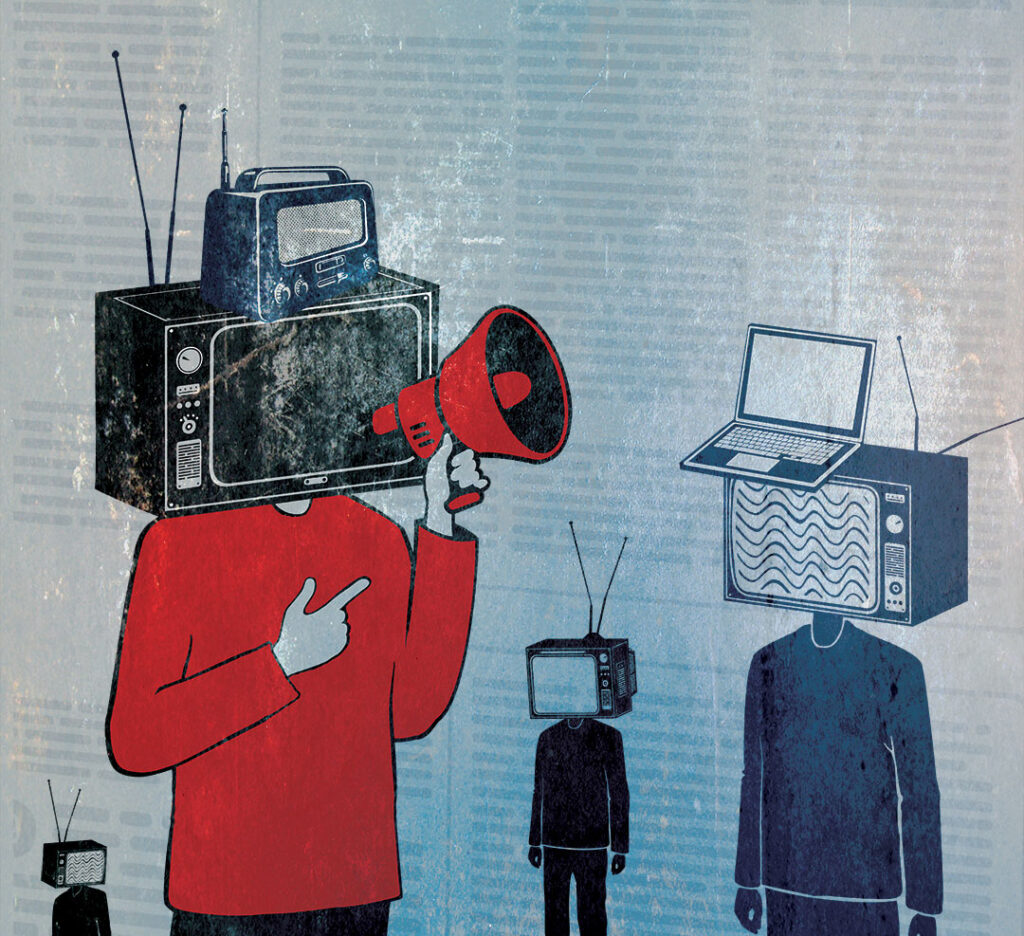Maj. Gen. (Ret.) Ouda Shudeifat, media and cultural advisor, General Command, Jordan Armed Forces-Arab Army
News flows in from far and wide, accompanied by analysis, commentary, communication and dialogue. Based on the convictions, opinions and objectives of the media outlet or guest, programs can strike an accusatory, defensive or neutral pose on issues of the day.
On many broadcasts, the features, emotions and modes of expression shift; patience wears thin and voices rise, perhaps even to the point of shouting and swearing, until the viewer gets confused. It is often difficult to come away from this melange of opinions with something factual and useful. And this scene is repeated whenever the viewer tries to track the news from one outlet to another, usually via satellite channels.
We fully acknowledge that the media, with all its disciplined outlets and content, is essential in modern life, and its role amid the totality of our lives cannot be diminished. With the rapid development of information technology and everything that goes along with it, media content has become available to everyone living in something resembling a global village.
What gives me pause, however, is the presence of an army of satellite channels funded by the Islamic Radio and Television Union that broadcast hateful sectarian programs, disguising the ugliness of armed groups and calling affiliated gangs “holy.”
The union operates about 210 media companies in 35 countries, mostly in the Middle East. It encompasses research and survey centers, psychological warfare teams, and news sites. These institutions target a specific segment of society to brainwash people with disinformation that inculcates a sense of injustice and deprivation and push them to rebel against their governments.
In my view, this is a clear act of aggression and a declaration of war against the civil peace of Arab societies. Iran uses these media tentacles as a bargaining chip with the countries of the region and the world, exposing countries to the contagion of war and destruction. International sanctions should be imposed on this entity because it incites violence and terrorism just like the Islamic Revolutionary Guard Corps in Iran and security institutions.
You will often see a specific topic dominate headlines, news talk shows and the like. These days, a person following news networks in the region, and some networks elsewhere in the world, may not find a single news item or report that does not mention Iran and its regime, goals, objectives, influence, weapons and impact on many societies, as well as its misconduct and interference in other countries’ domestic and foreign affairs.
Iran even manipulates the future of those societies —
the futures of their children, their growing ambitions, and their specific agendas — using all means available. For example, at the level of global concerns, the Iranian nuclear program worries everyone and is a prominent topic, and information on it confronts you morning and evening. This has caused some countries of the region to allocate huge budgets, amounting to $1.5 billion, to deal with the Iranian threat.
Malaysia ceased all relations with Iran and, in an unprecedented move, shut down all forms of cooperation with Iran. Lebanon suffers greatly because of Iranian interference. Likewise, Yemen is experiencing bitter conflict because of similar interference, which is now growing more frequent in Afghanistan. The situation in Iraq and Syria is as bad or worse. Neighboring countries in the Gulf and elsewhere in the region are not exempt from similar Iranian interference that takes different forms by employing warlords, crisis profiteers and promoters of sectarianism.
In the face of this intellectual threat — supported by weapons, militias, quick-to-react partisans, media warfare, drug dealers, extremist ideology, and permissiveness toward whatever serves the ideology of a country gripped by religious and national fanaticism — we must not stand by idly. We must maintain the safety and security of our homelands, which are in the eye of the storm of Iranian-backed terrorism.
We need not declare war on Iran to halt its aspirations of expansion at the expense of the countries of the region and investment in terrorist groups. Like others, I view war as a product of a failure to find a political solution to a dilemma. I am calling on us to use soft power while hoping that we will not be forced to defend ourselves. This is the only way to apply the reins to Iran’s brutish ambitions. This soft power includes economic and diplomatic pressure.
We should sustain and strengthen regional and international partnerships that will deter those who would violate international law and hide behind proxies and hired guns. Iran continues its efforts to acquire nuclear weapons and represents a danger to the region before it even has acquired them. So what if a country with this sort of illogical conduct were to acquire a weapon of mass destruction?
We must continue to apply pressure to Iran and discourage it from supporting, harboring and training terrorist groups.

